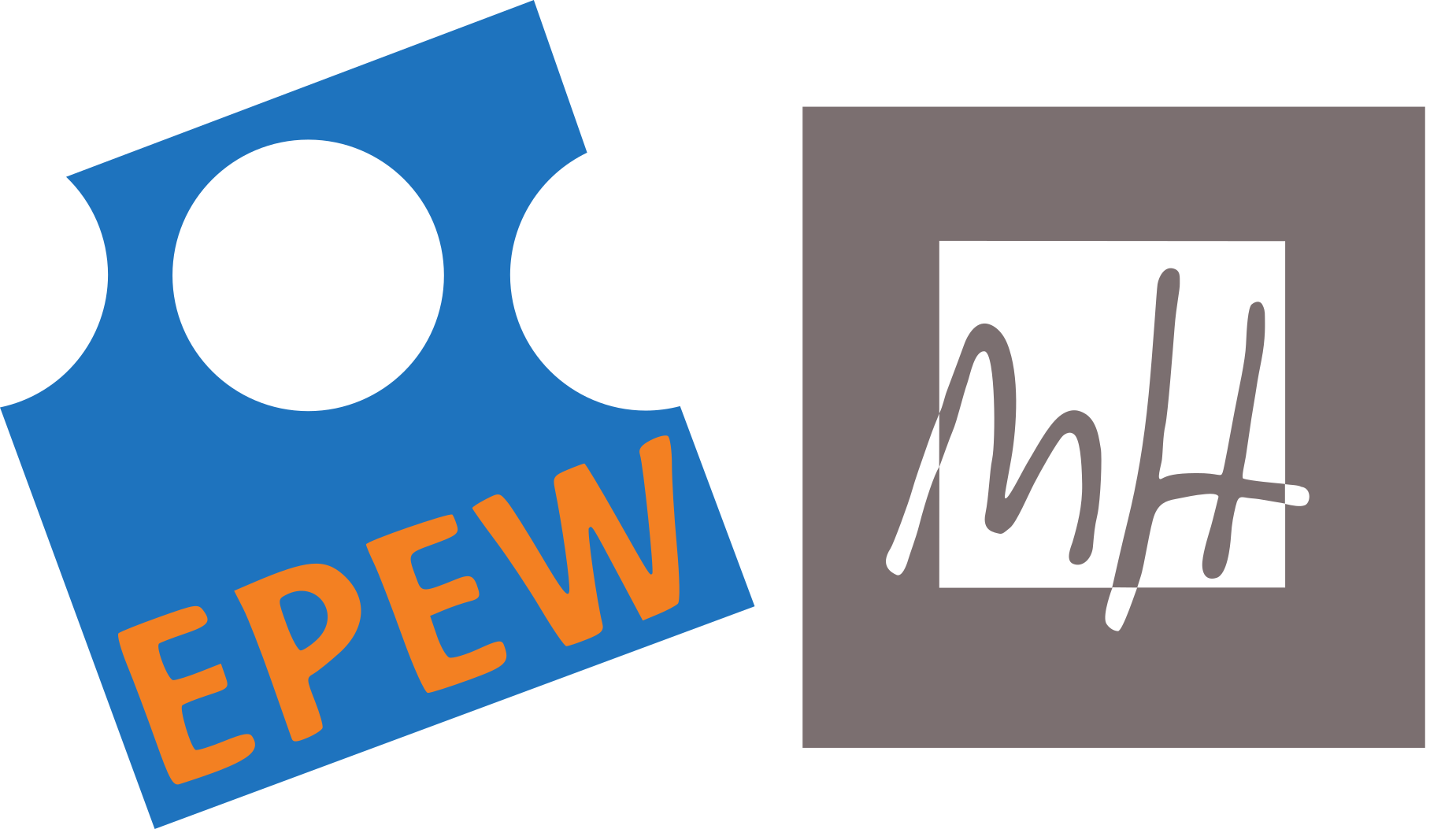
EPEW 2022
18th European Performance
Engineering Workshop
Santa Pola, Alicante (Spain)
September, 21-23, 2022

Important Dates
Paper Submission deadline : May 31st, 2022
June 21st, 2022
Notification of Acceptance : July 15th, 2022
Camera Ready : September 5th, 2022
Keynote Speakers
Dr. Xavier Costa Pérez – ICREA, i2cat, NEC Laboratories Europe
Title:
AI for Future 6G Systems
Abstract:
As 5G is being deployed, researchers are already looking for new challenges to define the next generation of mobile communications networks. In this Keynote we will review AI technologies expected to shape future 6G networks. Several topics will be covered comprising AI-driven automation for industry verticals, O-RAN network disaggregation, smart surfaces and wireless sensing. Early research results will be presented on these topics along with major joint academia-industry efforts in large-scale projects.
Prof. Aad van Moorsel – University of Birmingham, School of Computer Science
Title:
Probabilistic Models for Blockchain: Trends and Challenges
Abstract:
Decentralised architectures such as blockchains rely on incentives, typically as crypto-currency fees. These incentives entice participating parties to behave such that the system runs well and secure. There remain a lot of subtleties in setting incentives, for instance in block validation or mining pool optimization. These subtleties impact fairness across miners, and their analysis requires probabilistic and possibly game theoretic models. In this keynote we review some interesting trends, tools and challenges for probabilistic predictive modelling of blockchain.
Registration
The registration process is now open
Organising Committee
Chair:
Katja Gilly, Miguel Hernandez University (UMH)
Members:
Salvador Alcaraz, UMH
Cristina Bernad, UMH
Pedro Pablo Garrido, UMH
Eduardo López, UMH
Pedro J. Roig, UMH
Web design: Javier Almagro Rubiales
Program Committee
Chair:
Nigel Thomas, Newcastle University
Members:
Noura Aknin, Abdelmalek Essaadi University
Salvador Alcaraz, Miguel Hernandez University
Elvio Gilberto Amparore, Università degli studi di Torino
Paolo Ballarini, CentraleSupelec
Enrico Barbierato, Università Cattolica del Sacro Cuore
Marco Beccuti, Università degli studi di Torino
Marco Bernardo, University of Urbino
Laura Carnevali, University of Florence
Ioannis Dimitriou, University of Patras
Dieter Fiems, Ghent University
Sonja Filiposka, University of Sts. Cyril and Methodius
Matthew Forshaw, Newcastle University
Jean-Michel Fourneau, University of Versailles
Pedro Pablo Garrido, Miguel Hernandez University
Marco Gribaudo, Politecnico di Milano
Boudewijn Haverkort, Tilburg University
András Horváth, University of Turin
Esa Hyytia, University of Iceland
Mauro Iacono, Università della Campania Luigi Vanvitelli
Alain Jean-Marie, INRIA
Carlos Juiz, University of the Balearic Islands
William Knottenbelt, Imperial College London
Lasse Leskelä, Aalto University
Andrea Marin, University of venice
Anastas Mishev, University of Sts. Cyril and Methodius
Nihal Pekergin, Université Paris-Est Créteil
Tuan Phung-Duc, University of Tsukuba
Agapios Platis, University of the Aegean
Anne Remke, WWU Münster
Markus Siegle, Uni Bw Munich
Miklos Telek, Budapest University of Technology and Economics
Joris Walraevens, Ghent University
Katinka Wolter, Frei Universität Berlin
Previous events
EPEW 2021 (online, Japan)
EPEW 2019 (Milan, Italy)
EPEW 2018 (Paris, France)
EPEW 2017 (Berlin, Germany)
EPEW 2016 (Chios, Greece)
EPEW 2015 (Madrid, Spain)
EPEW 2014 (Florence, Italy)
EPEW 2013 (Venice, Italy)
EPEW 2012 (Munich, Germany)
EPEW 2011 (Borrowdale, UK)
EPEW 2010 (Bertinoro, Italy)
EPEW 2009 (Imperial College, UK)
EPEW 2008 (Palma de Mallorca, Spain)
EPEW 2007 (Berlin, Germany)
EPEW 2006 (Budapest, Hungary)
EPEW 2005 (Versailles, France)
EPEW 2004 (Toledo, Spain)
Call for Papers
The European Performance Engineering Workshop is an annual event that aims to gather academic and industrial researchers working on all aspects of performance engineering.
EPEW 2022 aims to bring together researchers interested in understanding and improving the performance of systems where the flow of information is random by means of proper modelling and solution methods working on real-world or realistic applications of the methods applied in stochastic modelling, and on theoretical aspects arising as solutions to needs emerging from the study of real-world or realistic cases, across a broad spectrum of research fields. EPEW specially focuses on the application of methods to concrete applications, by paying attention to the choice of the parameters which must be close to concrete cases: it seeks papers to promote research results in the development and analysis of stochastic models arising among others in communication systems, manufacturing, production, service operations, supply chain/inventory management, and biological systems. Its scope includes both methodological and computational advances, with special interest in contributions that present novel solutions, including approaches based on novel tools, to real-world or realistic cases and related analysis or that present interesting and new design, assessment or performance evaluation solutions on new paradigmatic cases and problems, by means of methods meant to predict and efficiently design stochastic systems.
We invite original papers related to the following areas:
- Theoretical advances in performance modelling and evaluation, e.g.:
- Probabilistic, stochastic, or performability models, such as Queueing Networks, Petri Nets, and Process Calculi
- Specification of quantitative properties
- Analytical and numerical solution techniques and simulation techniques
- Quantitative model checking, equivalence checking, and static analysis
- Context-aware modelling and analysis techniques
- Machine learning and deep learning based approaches for performance evaluation and analysis
- Multiformalism and Multiparadigm modelling approaches
- System, software, and network performance engineering, e.g.:
- Performance-oriented design, architecture, implementation, deployment, monitoring, and maintenance
- Constraint-based and model-driven system design
- Performance analysis, simulation, and experimental design
- Benchmark design and benchmark-based evaluation and monitoring
- Automated interpretation of analysis results
- Quality of service, and trade-offs between security, performance, dependability, energy consumption, usability, etc.
- Software performance modelling languages, model composition and tool interoperability
- 6G challenges and beyond
- Case studies, e.g.:
- Cloud systems, Hybrid Cloud, Fog, Edge and Computing Continuum
- Internet of Things
- Cyber-physical systems
- E-health systems
- Blockchain and Cryptocurrency applications
- Sharing services such as carshare and rideshare
- Electric vehicles and battery modelling
- Large-scale systems and scalability analysis of systems, robustness analysis of systems, resilience analysis of systems
- Industrial case studies, experience reports and tools, with a solid analysis and theoretical background
Submission Guidelines
Full papers reporting original and unpublished results on EPEW topics are solicited. Submissions should not be under consideration for publication elsewhere while being evaluated for this conference. The proceedings will be published in the Springer Verlag Lecture Notes in Computer Science (LNCS) series. Submissions may already be prepared in LNCS format (Springer_Instructions_for_Authors_of_Proceedings_CS) and must not exceed 15 pages, including figures, tables, and references; see the information for authors on Springer as web site for formatting instructions (Springer). Please clearly indicate the corresponding author.
Note that authors will be required to sign a copyright release. The paper submission for EPEW 2022 will only be accepted through the EasyChair Paper Submission System (https://easychair.org/my/conference?conf=epew2022). Consistent with standard practice, each submitted paper will receive rigorous peer reviewing. Papers will be selected based on their
originality, timeliness, significance, relevance, and clarity of presentation. Submission implies the willingness of at least one of the authors to register and present the paper in person, if accepted.
All accepted papers in the conference are expected to be presented and will be included in the conference proceedings.
Best paper Award
The EPEW 2022 committee will select the best paper award of the conference for which a certificate will be presented at the end of the conference.
Special Issues
Extended versions of the best papers will be considered for fast-track publication in ACM Transactions on Modeling and Performance Evaluation of Computing Systems (TOMPECS).
